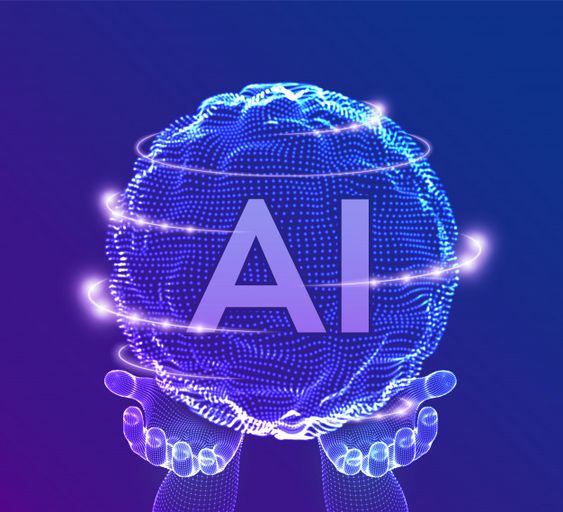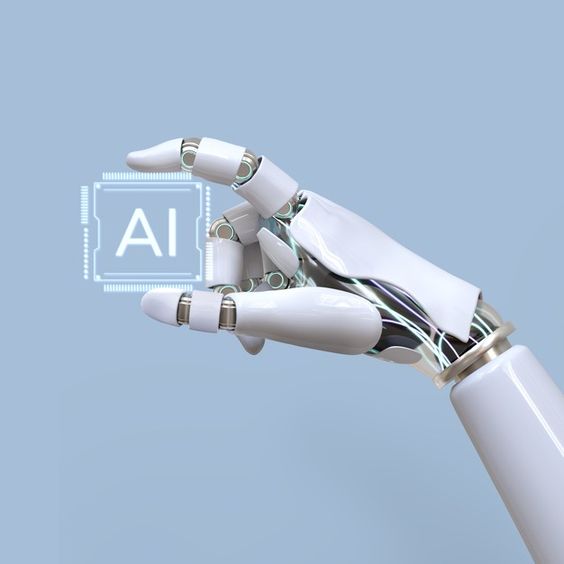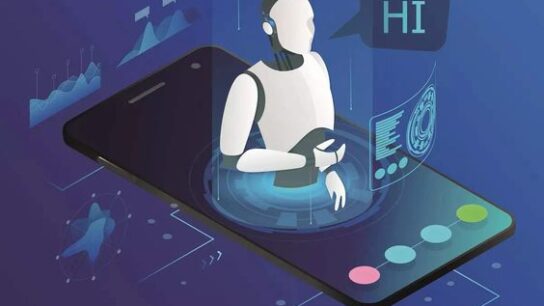Introduction
In today’s rapidly evolving world, Teaching Artificial Intelligence (AI) is at the forefront of technological innovation, reshaping industries and altering the future job landscape. As AI continues to permeate various sectors—from healthcare and finance to entertainment and education—the need to teach AI has become increasingly urgent. Equipping students with AI knowledge and skills is no longer optional; it’s essential for ensuring they thrive in a world where AI will play a central role.
This article explores the importance of teaching AI, the challenges educators face, effective strategies for integrating AI into curricula, and the tools and resources available to educators. Whether you are an educator, a student, or simply interested in the future of education, this guide Teaching Artificial Intelligence provides a comprehensive overview of how AI can be taught effectively across different educational levels.

- Understanding Teaching Artificial Intelligence.
- Challenges in Teaching Artificial Intelligence
- Strategies for Teaching Artificial Intelligence
- Teaching Artificial Intelligence at Different Educational Levels
- AI Tools and Resources for Educators
- The Role of AI in Education
- Case Studies and Success Stories
- The Future of AI Education
- Conclusion
Understanding Teaching Artificial Intelligence.
What is AI?
Artificial Intelligence refers to the simulation of human intelligence in machines that are programmed to think, learn, and adapt. AI encompasses a range of technologies and methodologies, including:
- Machine Learning (ML): A subset of AI where algorithms learn from data to make decisions or predictions without being explicitly programmed for each task.
- Deep Learning: A more advanced form of machine learning that uses neural networks with many layers to model complex patterns in data.
- Natural Language Processing (NLP): The ability of machines to understand and respond to human language, enabling applications like chatbots and voice assistants.
- Computer Vision: The capability of AI systems to interpret and make decisions based on visual data, such as images or videos.
AI is typically categorized into two types:
- Narrow AI: AI that is designed to perform a specific task, such as image recognition or language translation. This is the most common form of AI today.
- General AI: A theoretical form of AI that would possess the ability to perform any intellectual task that a human can, with the capacity to learn and adapt across different domains.
Why Teach AI?
Teaching AI is crucial for several reasons:
- Future-Proofing the Workforce: As AI continues to disrupt traditional job roles, it’s vital to prepare students for the future job market. Understanding AI will be essential for a wide range of careers, from engineering and data science to marketing and management.
- Encouraging Innovation and Problem-Solving: AI education promotes critical thinking and problem-solving skills, as students learn to develop algorithms, analyze data, and create intelligent systems.
- Promoting Ethical and Responsible AI Development: With great power comes great responsibility. Teaching AI also involves educating students about the ethical implications of AI, including issues like bias, privacy, and the impact of AI on society.
Challenges in Teaching Artificial Intelligence
While the benefits of teaching AI are clear, educators face several challenges:

Complexity of the Subject Matter
AI is a complex and rapidly evolving field, with concepts that can be difficult for students to grasp. From understanding neural networks to working with large datasets, the technical nature of AI requires a strong foundation in mathematics, computer science, and logical thinking.
Lack of Qualified Educators
There is a significant shortage of educators who are equipped to teach AI. Many teachers may not have the necessary background in computer science or data science, making it challenging to develop and deliver AI curricula.
Resource Constraints
Implementing AI education requires access to technology, such as powerful computers, software tools, and datasets. Many schools, particularly in underfunded or rural areas, may lack the resources needed to provide a comprehensive AI education.
Ethical Concerns
AI raises numerous ethical questions, including issues related to privacy, bias, and the potential for job displacement. Educators must not only teach the technical aspects of AI but also address these ethical considerations to ensure that students develop a responsible approach to AI development.
Strategies for Teaching Artificial Intelligence
Despite these challenges, there are effective strategies for teaching AI that can be adapted to different educational contexts:
Integrating AI into Existing Curricula
One of the most effective ways to teach AI is to integrate it into existing subjects. For example:
- Mathematics: Teach linear algebra and statistics as foundational skills for understanding machine learning algorithms.
- Computer Science: Introduce programming languages like Python, which are widely used in AI development.
- Ethics: Incorporate discussions on the ethical implications of AI in philosophy or social studies classes.
By embedding AI concepts into traditional subjects, educators can make AI more accessible and less intimidating for students.
Project-Based Learning
Teaching Artificial Intelligence is best learned through hands-on experience. Project-based learning allows students to apply AI concepts to real-world problems, fostering a deeper understanding of the material. Examples of AI projects include:
- Building a simple chatbot using NLP tools.
- Developing a machine learning model to predict housing prices based on historical data.
- Creating a computer vision application that can recognize objects in images.
These projects encourage creativity and problem-solving while giving students practical experience with AI technologies.
Leveraging Online Resources and Courses
There is a wealth of online resources available for teaching AI, ranging from beginner tutorials to advanced courses. Platforms like Coursera, edX, and Khan Academy offer comprehensive AI courses that include video lectures, quizzes, and interactive assignments.
Additionally, educators can use open-source tools like TensorFlow or PyTorch to introduce students to machine learning and deep learning. These platforms provide a hands-on approach to learning AI and allow students to experiment with real-world datasets.
Collaborating with Industry Experts
Collaboration with industry experts can enrich AI education by providing students with insights into the practical applications of AI. Schools can partner with tech companies to offer internships, workshops, and guest lectures, giving students the opportunity to learn from professionals who are at the forefront of AI development.
Encouraging a Multidisciplinary Approach
AI intersects with various fields, including psychology, neuroscience, and economics. Encouraging students to explore AI from multiple perspectives can lead to a more holistic understanding of the technology. For example:
- Psychology: Explore how AI can model human cognition and behavior.
- Neuroscience: Study the parallels between neural networks in AI and the human brain.
- Economics: Analyze the impact of AI on labor markets and economic growth.
This multidisciplinary approach helps students appreciate the broader implications of AI and its potential to transform multiple industries.
Teaching Artificial Intelligence at Different Educational Levels

AI education should be tailored to the needs and abilities of students at different educational levels:
AI Education in K-12 Schools
Introducing AI concepts in K-12 education can spark early interest in the field and lay the groundwork for more advanced studies. Here’s how AI can be taught at different stages:
- Elementary School: Introduce basic AI concepts through games and interactive activities. For example, students can learn about pattern recognition by identifying shapes or colors in a game, or they can explore basic programming concepts with block-based coding platforms like Scratch.
- Middle School: At this stage, students can begin working on simple AI projects, such as building a basic chatbot or creating a decision tree. Robotics kits, such as those from LEGO Mindstorms, can also be used to teach AI concepts in a fun and engaging way.
- High School: High school students can dive deeper into Teaching Artificial Intelligence by learning programming languages like Python and exploring machine learning algorithms. Advanced students may work on more complex projects, such as developing AI models for data analysis or creating AI-powered apps.
AI Programs in Higher Education
At the undergraduate and graduate levels, AI education becomes more specialized and in-depth. Universities offer courses that cover various aspects of AI, from foundational topics like algorithms and data structures to advanced topics like deep learning and natural language processing.
- Undergraduate Programs: These programs often include core courses in computer science, mathematics, and statistics, along with electives focused on AI applications. Students may have the opportunity to participate in research projects, internships, or AI competitions, such as Kaggle challenges.
- Graduate Programs: Graduate students can pursue advanced studies in AI, conducting research in areas like reinforcement learning, AI ethics, or AI for social good. These programs often culminate in a thesis or capstone project that demonstrates the student’s expertise in AI.
Professional Development and Continuing Education
As AI continues to evolve, professionals across various industries need to stay updated on the latest developments. Continuing education and professional development programs can help working professionals gain the skills needed to integrate AI into their work.
- Workshops and Bootcamps: Short-term programs that focus on specific Teaching Artificial Intelligence skills, such as machine learning, data science, or AI application development. These programs often include hands-on projects and case studies, providing practical experience.
- Certifications: Earning certifications from reputable institutions, such as Stanford or MIT, can enhance a professional’s credentials and open up new career opportunities. Many online platforms offer AI certifications that are recognized in the industry.
AI Education for Non-Technical Audiences
AI is not just for technologists. Non-technical audiences, such as business leaders, policymakers, and educators, can also benefit from understanding AI’s potential and limitations. Courses and workshops designed for non-technical learners focus on the practical applications of AI and its impact on society.
- Business Leaders: Courses that teach how AI can be leveraged to improve decision-making, optimize operations, and drive innovation within organizations.
- Policymakers: Programs that explore the regulatory and ethical implications of AI, helping policymakers develop informed strategies for AI governance.
- Educators: Professional development programs that equip teachers with the knowledge and tools needed to introduce AI concepts in the classroom.
AI Tools and Resources for Educators
To effectively teach AI, educators need access to a variety of tools and resources. Here are some of the most valuable resources available:
AI Platforms and Software Teaching Artificial Intelligence
Several platforms and software tools can help educators teach AI:
- Google’s AIY Projects: A collection of do-it-yourself AI kits that allow students to build their own AI devices, such as voice assistants or image recognition systems.
- IBM Watson: An AI platform that offers various tools and services for building AI applications. Educators can use Watson to teach students about NLP, machine learning, and data analysis.
- Microsoft Azure AI: A suite of AI services that educators can use to introduce students to AI concepts like computer vision, speech recognition, and predictive analytics.
Open-Source AI Tools Teaching Artificial Intelligence
Open-source tools are an excellent resource for teaching AI, as they are freely available and widely used in the industry:
- TensorFlow: An open-source machine learning library developed by Google, widely used for building and training AI models.
- PyTorch: A deep learning framework developed by Facebook that is known for its flexibility and ease of use, making it a popular choice for both research and education.
- Scikit-learn: A Python library that provides simple and efficient tools for data mining and data analysis, built on NumPy, SciPy, and matplotlib.
Educational Resources and Online Courses
Numerous online platforms offer AI courses and tutorials that educators can use to supplement their teaching:
- Coursera: Offers AI courses from top universities and companies, including deep learning, machine learning, and AI for everyone.
- edX: Provides AI courses and programs from institutions like Harvard, MIT, and IBM, covering a wide range of topics from basic AI principles to advanced machine learning techniques.
- Khan Academy: Offers free, beginner-friendly tutorials on computer science and AI, suitable for K-12 students.
Community and Peer Support Networks
Joining a community or peer support network can be incredibly helpful for educators who are teaching AI:
- AI4ALL: A nonprofit organization dedicated to increasing diversity and inclusion in AI by providing education and mentorship to underrepresented groups. AI4ALL offers summer programs, curriculum resources, and a network of AI professionals.
- ISTE AI Explorations: A program by the International Society for Technology in Education (ISTE) that provides educators with resources, training, and a community to explore AI and its implications for education.
- Meetup Groups: Local AI or data science meetups can be a great way for educators to connect with professionals in the field, learn about the latest trends, and share best practices.
The Role of AI in Education
AI is not only a subject to be taught but also a tool that can transform the educational process itself. Here’s how AI is shaping education:
AI as a Teaching Tool
AI can be used to personalize learning, adapting educational content to meet the individual needs of students. For example:
- Adaptive Learning Systems: AI-powered platforms can assess a student’s strengths and weaknesses, providing personalized lessons and practice exercises to address specific areas of need.
- Intelligent Tutoring Systems: AI-driven tutors can provide students with real-time feedback and guidance, helping them master complex concepts at their own pace.
AI in Administrative Tasks
AI can streamline administrative tasks, freeing up educators to focus more on teaching:
- Automated Grading: AI systems can grade assignments and exams, reducing the time and effort required for manual grading.
- Attendance Tracking: AI-powered systems can automatically track student attendance, reducing administrative overhead and ensuring accurate records.
AI in Content Creation
AI can assist in creating educational content, such as:
- AI-Generated Quizzes: AI can generate quizzes and assessments tailored to the specific learning objectives of a course.
- Interactive Learning Materials: AI can create interactive simulations, games, and exercises that engage students and reinforce learning.
Ethical Considerations of AI in Education
As AI becomes more integrated into education, it’s essential to consider the ethical implications:
- Bias in AI Systems: AI systems can perpetuate biases present in the data they are trained on. Educators must be aware of these biases and work to mitigate them in the classroom.
- Privacy Concerns: The use of AI in education raises privacy issues, particularly when it comes to collecting and analyzing student data. Schools must ensure that they comply with privacy regulations and protect students’ personal information.
Case Studies and Success Stories
To illustrate the impact of AI education, here are a few examples of schools and programs that have successfully integrated AI into their curricula:
Case Study 1: AI in K-12 Education
A public school district in California has successfully implemented an AI curriculum for middle and high school students. The program includes:
- AI Clubs: Students participate in after-school AI clubs where they work on projects like building chatbots and developing AI-powered games.
- AI Competitions: The school district organizes annual AI competitions where students present their projects to a panel of judges from the tech industry.
This program has sparked a strong interest in AI among students, with many going on to pursue AI-related studies in college.
Case Study 2: University AI Programs
A leading university in the Midwest has developed an interdisciplinary AI program that combines computer science, ethics, and social sciences. The program includes:
- AI Research Labs: Students work on cutting-edge AI research projects, collaborating with faculty from different departments.
- AI Ethics Courses: The program emphasizes the importance of ethical AI development, with courses that explore topics like algorithmic bias, AI governance, and the social impact of AI.
Graduates of this program are well-prepared for careers in AI, with many going on to work at top tech companies or pursue advanced degrees in AI.
Case Study 3: AI for Social Good
An international nonprofit organization has launched an AI for Social Good initiative, providing AI education and resources to underserved communities around the world. The initiative includes:
- AI Workshops: The organization offers free AI workshops to students in low-income communities, teaching them how to use AI tools to address local challenges.
- AI Mentorship Programs: Students are paired with AI professionals who provide guidance and support as they work on AI projects with a social impact.
This initiative has empowered students to use AI to solve real-world problems, such as improving healthcare access or reducing environmental impact in their communities.
The Future of AI Education
As AI continues to advance, the landscape of AI education will also evolve. Here are some emerging trends and predictions for the future of AI education:
AI-Driven Learning Platforms
In the future, AI-driven platforms will become more sophisticated, offering personalized learning experiences that adapt to each student’s unique needs and learning style. These platforms will use advanced algorithms to assess student progress, provide tailored feedback, and recommend next steps in the learning journey.
AI in Early Childhood Education
AI is expected to play a more significant role in early childhood education, with interactive AI-powered toys and games that help young children develop cognitive skills, language abilities, and emotional intelligence.
AI Ethics and Policy Education
As AI becomes more integrated into society, there will be a growing need for education focused on AI ethics and policy. Universities and training programs will offer specialized courses that prepare students to navigate the complex ethical and regulatory challenges associated with AI.
AI in Teacher Training
AI will also play a role in teacher training, providing educators with tools and resources to enhance their teaching methods. AI-powered platforms will offer personalized professional development, helping teachers stay updated on the latest educational technologies and pedagogical strategies.
Conclusion
Teaching artificial intelligence is no longer a niche area of education; it is a necessity for preparing the next generation to thrive in a tech-driven world. By understanding the challenges and opportunities in AI education, educators can effectively integrate AI into their curricula and inspire students to become the innovators of tomorrow.
Frequently Asked Questions (FAQ) about Teaching Artificial Intelligence
1. Why is it important to Teaching Artificial Intelligence in schools and universities?
Teaching AI is crucial because it prepares students for a future where AI will be a significant part of various industries. Understanding AI helps students develop critical thinking, problem-solving skills, and the ability to innovate. It also equips them with the knowledge to navigate ethical challenges and contribute to responsible AI development.
2. At what age should students start learning about Teaching Artificial Intelligence?
Students can start learning about AI as early as elementary school. At this stage, the focus should be on introducing basic concepts through games and interactive activities. As students progress through middle and high school, they can engage with more complex AI projects and programming. By the time they reach university, students can dive into specialized AI courses and research.
3. What are the key subjects that support learning AI?
The foundational subjects for learning AI include:
- Mathematics: Particularly linear algebra, calculus, and statistics, which are essential for understanding AI algorithms.
- Computer Science: Programming languages like Python, data structures, and algorithms form the core of AI development.
- Ethics: Understanding the ethical implications of AI is vital to ensure responsible use of technology.
4. How can schools integrate AI education into their existing curricula?
Schools can integrate AI education by incorporating AI concepts into traditional subjects like mathematics, computer science, and social studies. For example, machine learning can be taught as part of a statistics course, while ethical considerations of AI can be discussed in philosophy classes. Additionally, project-based learning can be employed to give students hands-on experience with AI tools and technologies.
5. What challenges do educators face when Teaching Artificial Intelligence?
Educators face several challenges, including:
- Complexity of AI concepts: AI involves advanced mathematical and programming skills that can be difficult for students to grasp.
- Lack of qualified educators: There is a shortage of teachers with expertise in AI, making it challenging to deliver quality education.
- Resource constraints: Implementing AI education requires access to technology and tools, which may not be available in all schools.
- Ethical concerns: Educators must navigate the ethical implications of AI, such as bias and privacy issues, while teaching.
6. What resources are available for educators to teach AI?
Educators have access to a variety of resources, including:
- Online platforms and courses: Websites like Coursera, edX, and Khan Academy offer AI courses ranging from beginner to advanced levels.
- AI tools and software: Open-source tools like TensorFlow, PyTorch, and Scikit-learn provide practical experience in AI development.
- Educational kits: Kits like Google’s AIY Projects or LEGO Mindstorms introduce AI concepts through hands-on projects.
- Professional networks: Communities like AI4ALL and ISTE AI Explorations offer support, resources, and training for educators.
7. Can non-technical students or professionals learn Educational Technology AI?
Yes, AI education is not limited to those with a technical background. Non-technical students and professionals can learn AI through courses designed specifically for them. These courses focus on the practical applications of AI and its impact on various industries. Understanding Teaching Artificial Intelligence concepts can benefit professionals in business, healthcare, education, and other fields.
8. How can AI be used as a tool in education?
AI can enhance education by personalizing learning experiences, automating administrative tasks, and creating interactive content. For example, Educational Technology AI-driven adaptive learning systems can tailor lessons to a student’s needs, while AI-powered tutors provide real-time feedback. Additionally, AI can assist in creating quizzes, assessments, and other educational materials.
9. What are the ethical considerations when teaching AI?
Ethical considerations in AI education include:
- Bias in AI systems: AI algorithms can reflect and perpetuate biases present in the data they are trained on.
- Privacy concerns: The use of AI in education involves collecting and analyzing student data, raising privacy issues.
- AI’s societal impact: Educators must address the broader implications of AI, such as its effect on employment and social dynamics, to ensure that students develop a responsible approach to AI development.
10. What is the future of AI education?
The future of AI education will likely involve more advanced AI-driven learning platforms, increased focus on AI ethics and policy, and expanded AI education in early childhood. As AI technology evolves, so too will the methods and tools used to teach it, making AI education more accessible and effective across all levels of learning.





[…] For More Ai information Click Here […]